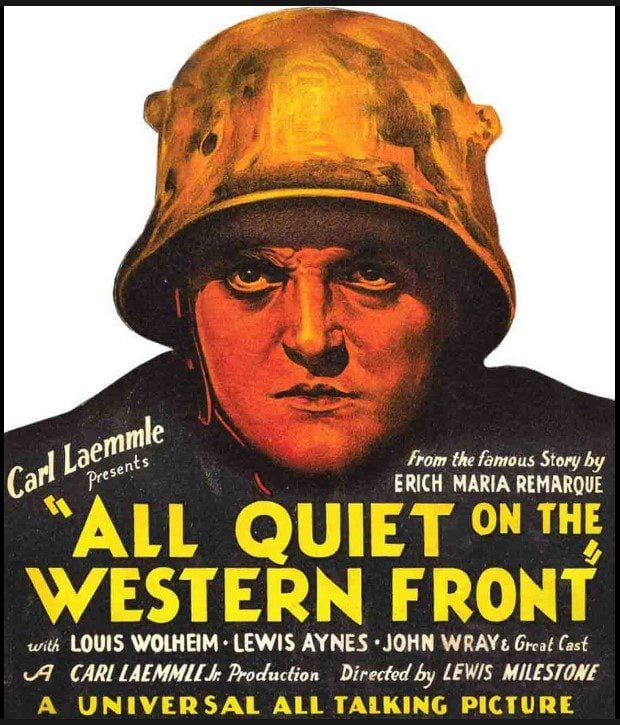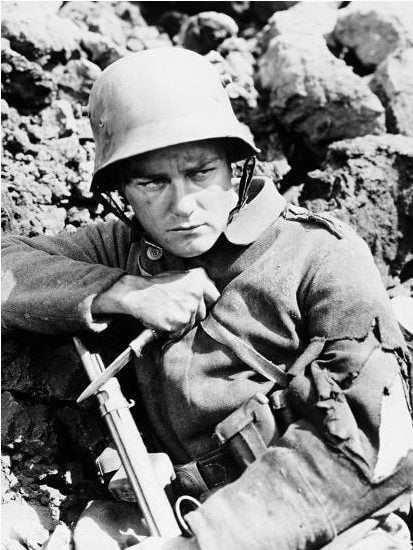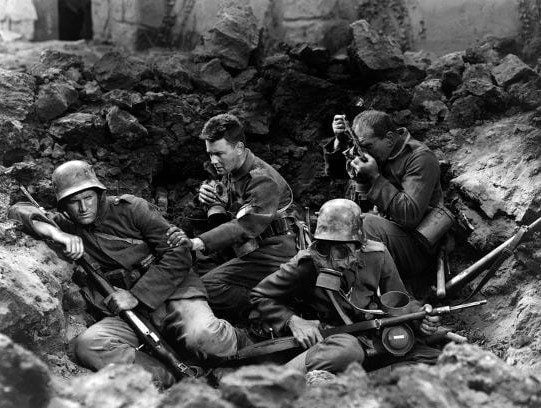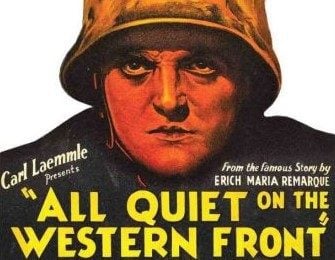All Quiet on the Western Front - 1930 Classic Movie

“All Quiet on the Western Front” is a powerful anti-war film that was released in 1930. The movie was based on the 1929 novel of the same name by Erich Maria Remarque. This epic pre-Code war film directed by Lewis Milestone and based on the 1929 novel of the same name by Erich Maria Remarque. The film was produced by Universal Pictures and starred Lew Ayres, Louis Wolheim, John Wray, and Ben Alexander.
The story follows a young German soldier named Paul Baumer (Lew Ayres) and his fellow soldiers as they experience the horrors and futility of World War I.
The film was shot on location in California and at Universal Studios in Hollywood. It was released on April 21, 1930, and won Academy Awards for Best Director and Outstanding Production (the precursor to Best Picture).
The story is set during World War I and follows the experiences of a group of young German soldiers who enlist in the army with patriotic fervor, only to find themselves disillusioned by the brutal realities of war. The novel and the film are considered anti-war classics and offer a searing critique of the dehumanizing effects of war.
Historically, “All Quiet on the Western Front” was released during a period of political and social upheaval in the United States and Europe. The film was made during the early years of the Great Depression, when many Americans were struggling to make ends meet. In Europe, the rise of fascism and the threat of another world war loomed large. The film’s themes of disillusionment, despair, and the human cost of war resonated with audiences at the time and continue to do so today.
The historical context surrounding the film is important to understand. World War I was a devastating conflict that lasted from 1914 to 1918. Millions of people were killed or injured, and the war had a profound impact on the world. Many soldiers who fought in the war suffered from physical and emotional trauma that lasted long after the war had ended.
Remarque’s novel and Milestone’s movie were both reflections of the disillusionment and horror that came from World War I. The movie portrayed the war as a senseless and brutal conflict, with soldiers on both sides suffering equally. It showed the human cost of war, with scenes of young soldiers being killed, wounded, or driven insane.
The movie was controversial at the time of its release, as it was seen as a form of anti-German propaganda in the years leading up to World War II. However, it is now recognized as a classic of anti-war cinema that explores the psychological and emotional impact of war on soldiers.
Overall, “All Quiet on the Western Front” is a powerful and moving film that remains relevant today. Its message about the horrors and futility of war is as important now as it was almost a century ago.
Written exclusively for TheLastPicture.Show by ChatGPD
Disclosure: The links on this page are “Affiliate Links” and while these are shown at no costs to our viewers, they generate commissions for our website(s)



